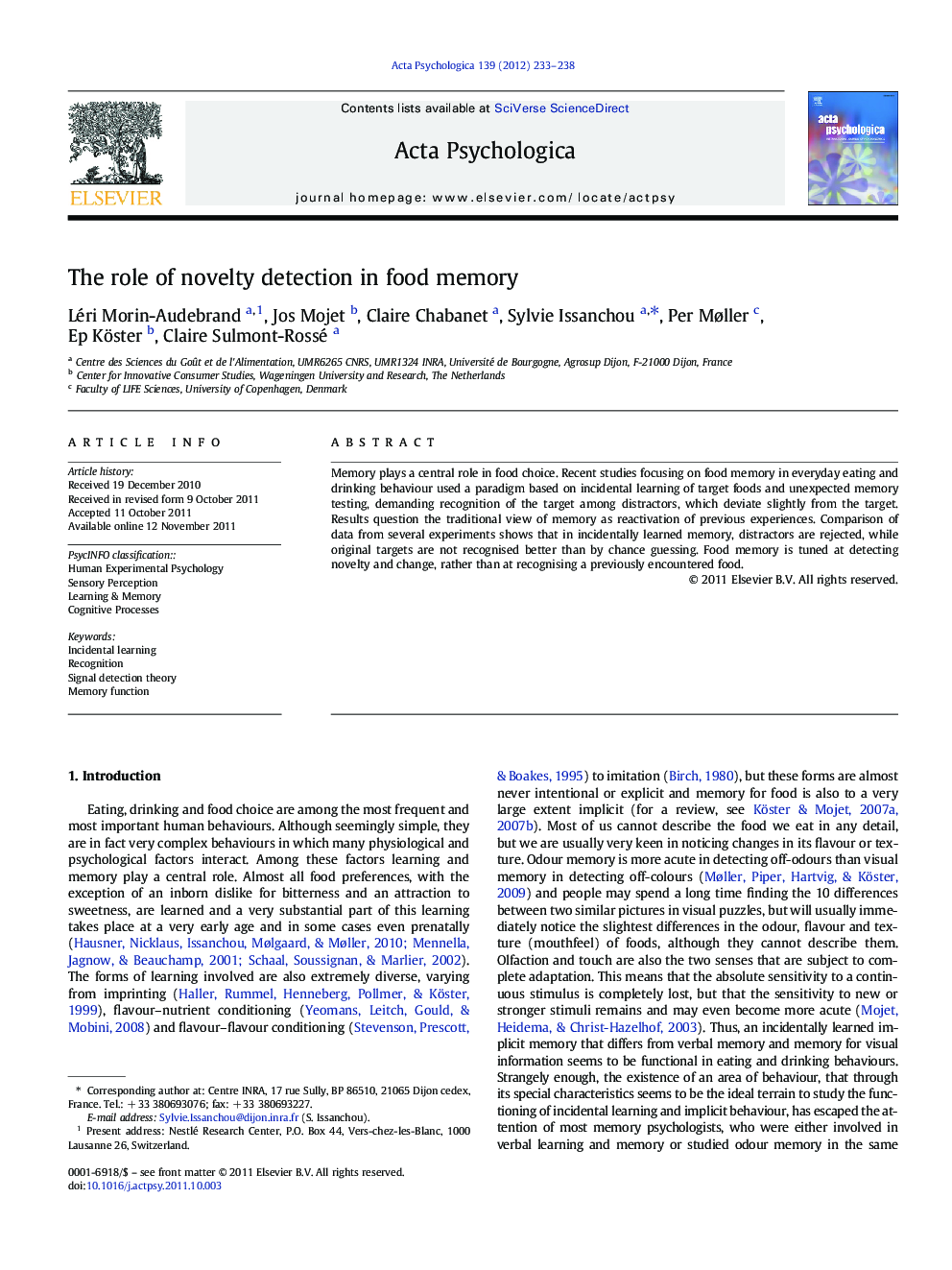| Article ID | Journal | Published Year | Pages | File Type |
|---|---|---|---|---|
| 920112 | Acta Psychologica | 2012 | 6 Pages |
Memory plays a central role in food choice. Recent studies focusing on food memory in everyday eating and drinking behaviour used a paradigm based on incidental learning of target foods and unexpected memory testing, demanding recognition of the target among distractors, which deviate slightly from the target. Results question the traditional view of memory as reactivation of previous experiences. Comparison of data from several experiments shows that in incidentally learned memory, distractors are rejected, while original targets are not recognised better than by chance guessing. Food memory is tuned at detecting novelty and change, rather than at recognising a previously encountered food.
► Food memory is tuned at detecting novelty and change rather than at recollection. ► A new paradigm for ecologically valid food memory research has been tested. ► With incidental learning, there is no effect of gender or age in food memory. ► Qualitative changes are more often correctly rejected than quantitative changes. ► Hedonics interfere with the independence of d' and bias in food memory measures.
